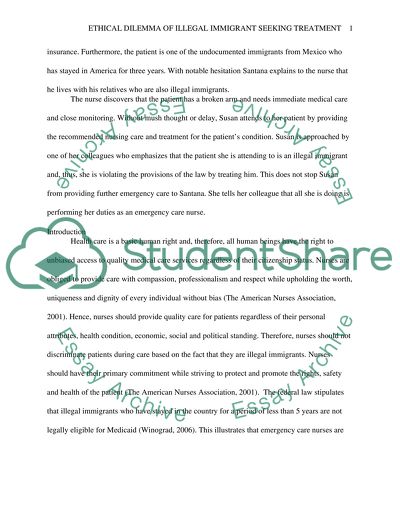Cite this document
(“Ethical Dilemma of Illegal Immigrant Seeking Treatment Article”, n.d.)
Ethical Dilemma of Illegal Immigrant Seeking Treatment Article. Retrieved from https://studentshare.org/philosophy/1443840-ethical-dilemma-of-illegal-immigrant-seeking
Ethical Dilemma of Illegal Immigrant Seeking Treatment Article. Retrieved from https://studentshare.org/philosophy/1443840-ethical-dilemma-of-illegal-immigrant-seeking
(Ethical Dilemma of Illegal Immigrant Seeking Treatment Article)
Ethical Dilemma of Illegal Immigrant Seeking Treatment Article. https://studentshare.org/philosophy/1443840-ethical-dilemma-of-illegal-immigrant-seeking.
Ethical Dilemma of Illegal Immigrant Seeking Treatment Article. https://studentshare.org/philosophy/1443840-ethical-dilemma-of-illegal-immigrant-seeking.
“Ethical Dilemma of Illegal Immigrant Seeking Treatment Article”, n.d. https://studentshare.org/philosophy/1443840-ethical-dilemma-of-illegal-immigrant-seeking.


